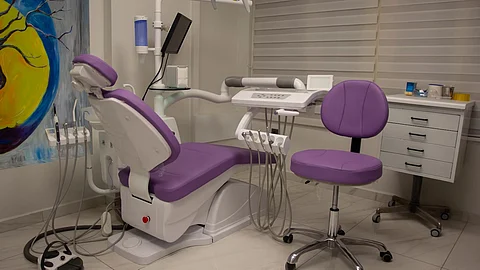What Are The Symptoms Of Dentophobia ?
The sign and symptoms of dentophobia include following of these:
• Nausea
• Chills
• Lightheadedness and dizziness
• Excessive sweating
• Breathlessness
• Shaking and trembling
• Increased heart rates
• Feeling of dread, panic or anxiety
• Crying at the thought of visiting a dentist
• Suffering from panic attacks or nightmares the night before the appointment
How To Assess Dentophobia?
Dentophobia can be assessed by the following methods:
• Corah's dental anxiety scale
• The index of dental anxiety and fear
• Modified child dental anxiety scale (MCDAS)
• Dental fear survey (DFS)


